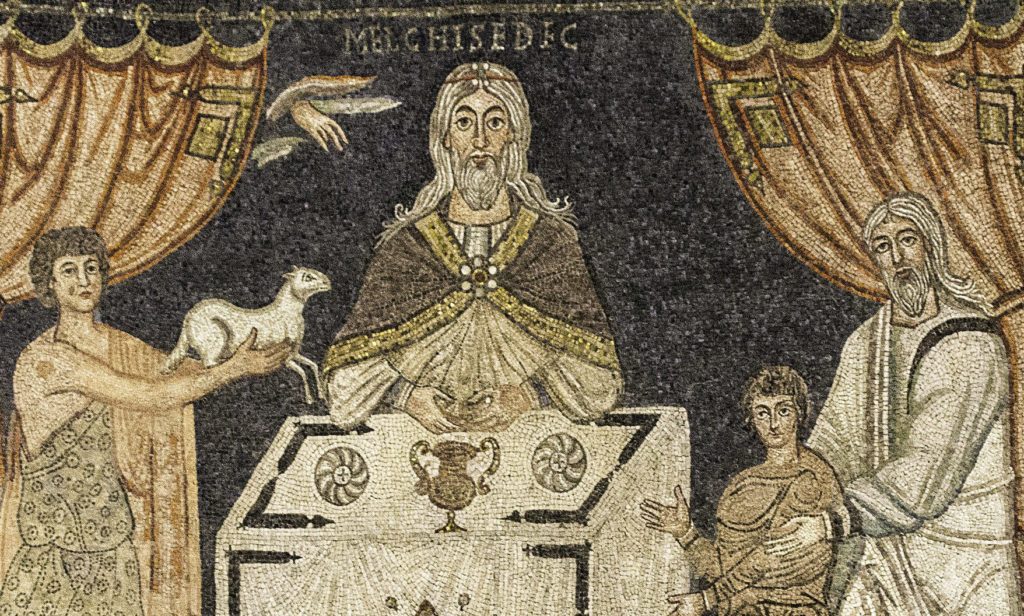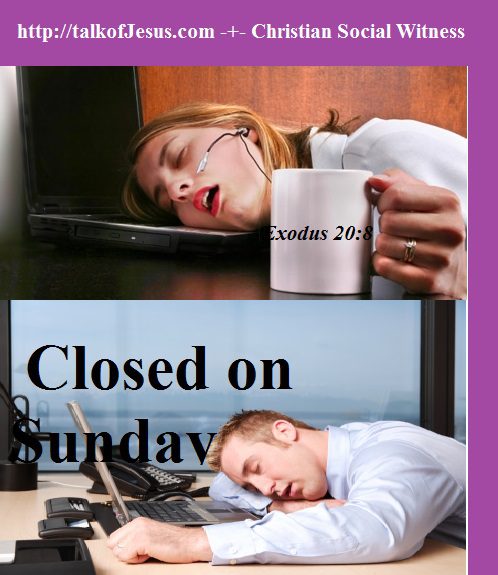This Melchizedek was king of the city of Salem and also a priest of God Most High. When Abraham was returning home after winning a great battle against the kings, Melchizedek met him and blessed him.
Hebrews 7:1 NLT
We’ve heard this before
Who was this Melchizedek?
The writer of Hebrews is about to give us our more mature teaching of scripture.
He has rebuked the readers of his letter (most likely Messianic Jews) for their elementary teachings. For after all, they know the Books of Moses and should connect Christ to the promises of their faith.
In Hebrews 5 he refers to Christ as a high priest like Melchizedek, quoting Psalm 110:4. And he returns to this imagery in Hebrews 6 and now chapter 7 where he makes his case.
The Mosaic Law points back to Abraham in Genesis. To hear God’s call to the Hebrews, even before they fled Egypt with Moses, hear just a little of this story.
It started with Abram
Genesis 12:
The Lord said to Abram:
Go out from your land,
your relatives,
and your father’s house
to the land that I will show you.
2 I will make you into a great nation,
I will bless you,
I will make your name great,
and you will be a blessing.
3 I will bless those who bless you,
I will curse anyone who treats you with contempt,
and all the peoples on earth
will be blessed through you.
12:3 וַאֲבָֽרֲכָה מְבָרְכֶיךָ וּמְקַלֶּלְךָ אָאֹר וְנִבְרְכוּ בְךָ כֹּל מִשְׁפְּחֹת הָאֲדָמָֽה׃
… And in you all the families of the earth will be blessed.”
genesis 12:3 NASB masoretic text
Abram went up from Egypt to the Negev… He then moved his tent and went to live near the oaks of Mamre at Hebron, where he built an altar to the Lord. Several local kings (or tribal princes, if you prefer) waged war against each other. Then one clan captured his relative Lot, whom Abram rescued. The alliance of victorious kings celebrate their victory with the help of Abram.
Melchizedek, King of Salem
18 Melchizedek, king of Salem, brought out bread and wine; he was a priest to God Most High. 19 He blessed him and said:
Abram is blessed by God Most High,
Genesis 14:18 CSB
Creator of heaven and earth,
14:19 וַֽיְבָרְכֵהוּ וַיֹּאמַר בָּרוּךְ אַבְרָם לְאֵל עֶלְיֹון קֹנֵה שָׁמַיִם וָאָֽרֶץ׃
El Elyon – GOD MOST HIGH has blessed Abram, says Melchizedek, ‘a priest of God Most High.’
This is the foundation of scripture familiar to the hearers of the letter of Hebrews. Now the author explains.
The Greatness of Melchizedek

First, his name means king of righteousness, then also, king of Salem, meaning king of peace.
Good credentials. Yet the author of Hebrews then points out that Moses did not give us any genealogies to tell who this king of righteousness might be.
Hebrews 7:
NOTE: Versions in link above: CSB; NKJV; Complete Jewish Bible; NLT; NIV
3 Without father, mother, or genealogy, having neither beginning of days nor end of life, but resembling the Son of God, he remains a priest forever.
Now consider how great this man was: even Abraham the patriarch gave a tenth of the plunder to him.
Hebrews 7:4
We worship God, perhaps giving a tithe (tenth), but Abram gave a tenth to ‘the king of righteousness, king of peace.‘ The author then proceeds to quote Mosaic Law which instructs Levite priests to collect a tithe to the Lord. He presents the case for the Law and application, then asks for our mature look at the Messiah as Priest.
11 Therefore, if perfection were through the Levitical priesthood (for under it the people received the law), what further need was there that another priest should rise according to the order of Melchizedek, and not be called according to the order of Aaron?
Melchizedek belonged to a different tribe than Abraham (and therefore, Levi). Moses said nothing about that tribe concerning priests.
Jesus, Son of Man, descended in the flesh from David and Judah, son of Israel [Jacob], son of Isaac, son of Abraham – Jesus the Messiah is not a Levite priest. Therefore the Messiah is something more.
And it is yet far more evident if, in the likeness of Melchizedek, there arises another priest who has come, not according to the law of a fleshly commandment, but according to the power of an endless life. For He testifies:
Hebrews 7:15-17 NKJV [quote of Psalm 110:4]
“You are a priest forever
According to the order of Melchizedek.
Melchizedek, Priest to GOD MOST HIGH
וּמַלְכִּי־צֶ֨דֶק֙ מֶ֣לֶךְ שָׁלֵ֔ם הֹוצִ֖יא לֶ֣חֶם וָיָ֑יִן וְה֥וּא כֹהֵ֖ן לְאֵ֥ל עֶלְיֹֽון׃
And Melchizedek king of Salem brought out bread and wine; now he was a priest of God Most High.
gENESIS 14:18 wlc; nasb
Set aside the former commandment, because it is useless here, states the author of Hebrews. (The Law completed nothing.) 7:19 [NET] On the other hand a better hope is introduced, through which we draw near to God.
Once again, the author points to God’s oath to Abraham from Psalm 110:4.
110:4 נִשְׁבַּע יְהוָה וְלֹא יִנָּחֵם אַתָּֽה־כֹהֵן לְעֹולָם עַל־דִּבְרָתִי מַלְכִּי־צֶֽדֶק׃
The LORD has sworn, and will not change his mind: “You are a Kohen forever in the order of Malki-Tzedek.”
Psalm 110:4 Masoretic text & Hebrew Names Version
The writer of Hebrews points to the priesthood, where Levites are appointed by birth rather than by an oath with the Lord. Jesus was not a Levite and neither was Melchizedek. The oath is a better promise, therefore he makes this case for both.
21 but he [Melchizedek] became a priest with an oath made by the one who said to him:
The Lord has sworn
and will not change his mind,
“You are a priest forever.”
22 Because of this oath, Jesus has also become the guarantee of a better covenant.
Though the scripture comes from a Psalm of David, the text is not about King David, who also died. The author of Hebrews also notes that Levitical priests die.
But because Jesus lives forever, his priesthood lasts forever. Therefore he is able, once and forever, to save[e] those who come to God through him.
Hebrews 7:24-25A NLT
He lives forever to intercede with God on their behalf.
26 He is the kind of high priest we need because he is holy and blameless, unstained by sin.
Melchizedek like Jesus
Some will make a case for the King and Priest of Salem as a “preincarnate” appearance of the Messiah Jesus. Certainly Christ IS our intercessor at the Altar.
He [Jesus] has been set apart from sinners and has been given the highest place of honor in heaven. 27 Unlike those other high priests, he does not need to offer sacrifices every day.
Certainly both Melchizedek and Jesus may be described as a: “King of peace” שָׁלֵם and “King of righteousness” צָדַק. Malki-Tzedek מַלְכִּי־צֶדֶק, transliterated into English from the Hebrew, from מֶלֶךְ (H4428) and צֶדֶק (H6664), meh’·lek – tseh’·dek. He is a King of Justice, of what is right in the place of peace.
Abram gives him an offering of peace, the spoils of victory over the princes of evil. He stands at the altar of sacrifice on our behalf before the Lord God.
The author of Hebrews, like David in Psalm 110, makes a case for the Messiah as a better intercessor for our sins.
a text written later than the Torah, appoints a Son who has been brought to the goal forever.
Hebrews 7:28c Complete Jewish Bible
He will continue the case for Jesus as our Priest and intercessor in the next chapter of his letter to the Hebrews.
To be continued...

 Luke 6:4 KJV
Luke 6:4 KJV